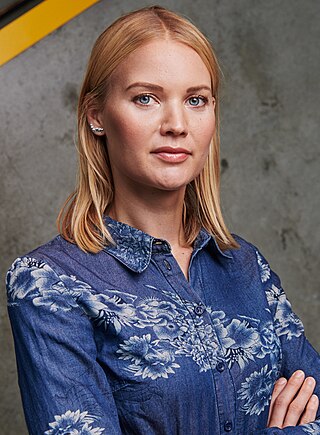An eating disorder is a mental disorder defined by abnormal eating behaviors that negatively affect a person's physical or mental health. Types of eating disorders include binge eating disorder, where the patient eats a large amount in a short period of time; anorexia nervosa, where the person has an intense fear of gaining weight and restricts food or overexercises to manage this fear; bulimia nervosa, where individuals eat a large quantity (binging) then try to rid themselves of the food (purging); pica, where the patient eats non-food items; rumination syndrome, where the patient regurgitates undigested or minimally digested food; avoidant/restrictive food intake disorder (ARFID), where people have a reduced or selective food intake due to some psychological reasons; and a group of other specified feeding or eating disorders. Anxiety disorders, depression and substance abuse are common among people with eating disorders. These disorders do not include obesity. People often experience comorbidity between an eating disorder and OCD. It is estimated 20–60% of patients with an ED have a history of OCD.

Bulimia nervosa, also known as simply bulimia, is an eating disorder characterized by binge eating followed by purging or fasting, and excessive concern with body shape and weight. This activity aims to expel the body of calories eaten from the binging phase of the process. Binge eating refers to eating a large amount of food in a short amount of time. Purging refers to the attempts to get rid of the food consumed. This may be done by vomiting or taking laxatives.
Binge eating disorder (BED) is an eating disorder characterized by frequent and recurrent binge eating episodes with associated negative psychological and social problems, but without the compensatory behaviors common to bulimia nervosa, OSFED, or the binge-purge subtype of anorexia nervosa.
Binge eating is a pattern of disordered eating which consists of episodes of uncontrollable eating. It is a common symptom of eating disorders such as binge eating disorder and bulimia nervosa. During such binges, a person rapidly consumes an excessive quantity of food. A diagnosis of binge eating is associated with feelings of loss of control. Binge eating disorder is also linked with being overweight and obesity.
William Stewart Agras is an American psychiatrist and psychotherapist of British origin, research psychiatrist and Emeritus (Active) Professor of Psychiatry and Behavioral Science at Stanford University. He normally goes by Stewart Agras.
Night eating syndrome (NES) is an eating disorder, characterized by a delayed circadian pattern of food intake. Although there is some degree of comorbidity with binge eating disorder, it differs from binge eating in that the amount of food consumed in the night is not necessarily objectively large nor is a loss of control over food intake required. It was originally described by Albert Stunkard in 1955 and is currently included in the other specified feeding or eating disorder category of the DSM-5. Research diagnostic criteria have been proposed and include evening hyperphagia and/or nocturnal awakening and ingestion of food two or more times per week. The person must have awareness of the night eating to differentiate it from the parasomnia sleep-related eating disorder (SRED). Three of five associated symptoms must also be present: lack of appetite in the morning, urges to eat at night, belief that one must eat in order to fall back to sleep at night, depressed mood, and/or difficulty sleeping.
Purging disorder is an eating disorder characterized by the DSM-5 as self-induced vomiting, or misuse of laxatives, diuretics, or enemas to forcefully evacuate matter from the body. Purging disorder differs from bulimia nervosa (BN) because individuals do not consume a large amount of food before they purge. In current diagnostic systems, purging disorder is a form of other specified feeding or eating disorder. Research indicates that purging disorder, while not rare, is not as commonly found as anorexia nervosa or bulimia nervosa. This syndrome is associated with clinically significant levels of distress, and that it appears to be distinct from bulimia nervosa on measures of hunger and ability to control food intake. Some of the signs of purging disorder are frequent trips to the bathroom directly after a meal, frequent use of laxatives, and obsession over one's appearance and weight. Other signs include swollen cheeks, popped blood vessels in the eyes, and clear teeth which are all signs of excessive vomiting.
Other specified feeding or eating disorder (OSFED) is a subclinical DSM-5 category that, along with unspecified feeding or eating disorder (UFED), replaces the category formerly called eating disorder not otherwise specified (EDNOS) in the DSM-IV-TR. It captures feeding disorders and eating disorders of clinical severity that do not meet diagnostic criteria for anorexia nervosa (AN), bulimia nervosa (BN), binge eating disorder (BED), avoidant/restrictive food intake disorder (ARFID), pica, or rumination disorder. OSFED includes five examples:

Judith L. Rapoport is an American psychiatrist. She is the chief of the Child Psychiatry Branch at the National Institute of Mental Health (NIMH), part of the National Institutes of Health (NIH) in Bethesda, Maryland.
Patrick F. Sullivan FRANZCP is an American psychiatric geneticist. He is the Yeargen Distinguished Professor of Psychiatry and Genetics at the University of North Carolina at Chapel Hill, where he is also the director of the Center for Psychiatric Genomics and the lead principal investigator of the Psychiatric Genomics Consortium. He is also a professor at the Karolinska Institutet in Stockholm, Sweden. His research focuses on the genetics of schizophrenia, major depressive disorders such as post-partum depression, eating disorders, and autism.

Barry Keith Herman is an American board certified adult and child and adolescent psychiatrist, psychiatric administrator, and physician executive. He currently is Chief Medical Officer of Atentiv Health, a digital health specialty provider, since March, 2020. Immediately prior, he was Senior Vice President and Chief Medical Officer of Tris Pharmaceuticals, Inc. in Monmouth Junction, NJ. He left this position at Tris in January 2020. Herman's interests include psychiatric administration and management, healthcare policy, and psychopharmacological research. He has spoken and written frequently on the topic of physician leadership and management. He is the author of over 100 scientific abstracts and manuscripts, and is frequently quoted in the media. His psychiatric research has been widely cited. Herman is the Past President of the American Association of Psychiatric Administrators, and currently serves on its Executive Council. He is the recipient of the 2017 American Psychiatric Association Administrative Psychiatry Award.

Emma Maria Frans is a postdoctoral researcher in medical epidemiology at Karolinska Institutet in Stockholm and well-known science communicator in Sweden. She is also known for writing the column "Vetenskapskollen" in the newspaper Svenska Dagbladet, where she examines the correctness and scientific accuracy of sensational news and popular science articles.

Miia K. Kivipelto is a Finnish neuroscientist and professor at the University of Eastern Finland and Karolinska Institute in Stockholm. Her research focuses on dementia and Alzheimer's disease.
The Psychiatric Genomics Consortium (PGC) is an international consortium of scientists dedicated to conducting meta- and mega-analyses of genomic-wide genetic data, with a focus on psychiatric disorders. It is the largest psychiatric consortium ever created, including over 800 researchers from 38 countries as of 2019. Its goal is to generate information about the genetics of psychiatric conditions that will be "actionable", that is, "genetic findings whose biological implications can be used to improve diagnosis, develop rational therapeutics, and craft mechanistic approaches to primary prevention". The consortium makes the main findings from its research freely available for use by other researchers.
Gerome Breen is a psychiatric geneticist who is Professor of Psychiatric Genetics in the MRC Social, Genetic and Developmental Psychiatry Centre at the Institute of Psychiatry, King’s College London. With Thalia C. Eley, he runs the Genetic Links to Anxiety and Depression (GLAD) study which seeks to recruit 40,000 people with experience of depression or anxiety, and serves as the leader of the NIHR Mental Health BioResource. In this, he also runs the UK Eating Disorder Genetic Initiative which aims to recruit 10,000 people with experience of an eating disorder. He is co-chair of the Psychiatric Genomics Consortium Eating Disorders working group, with Cynthia M. Bulik and Laura Huckins. He works with lived experience activist Hope Virgo and F.E.A.S.T. ED in the Hearts, Minds, and Genes coalition, a health policy focussed charity seeking to improve funding and support for treatment and research in eating disorders.

Unnur Anna Valdimarsdóttir is a professor in epidemiology at the Faculty of Medicine of the University of Iceland. Her research focuses on the role of trauma and other life adversities in health and disease development.
Danuta Elizabeth Wasserman is a professor of psychiatry and suicidology at Karolinska Institutet in Sweden. She is a public mental health and medical educator. She is currently the President of the World Psychiatric Association (WPA).
Marc Nicholas Potenza is an American psychiatrist who specializes in addiction psychiatry. He is Professor of Psychiatry, Child Study and Neurobiology at the Yale University School of Medicine, where he also serves as director of the Problem Gambling Clinic and the Center of Excellence in Gambling Research. He is also the director of the Women and Addictive Disorders Core of Women's Health Research and the Program for Research on Impulsivity and Impulse Control Disorders, both at Yale University.
Susan Lynn McElroy is Chief Research Officer at Lindner Center of HOPE.
Robin Meryl Masheb is an American psychologist. She is a Full Professor of Psychiatry at Yale University and Director of the Veterans Initiative for Eating and Weight. The program is dedicated to addressing eating and weight problems in veterans through research, training and advocacy.






